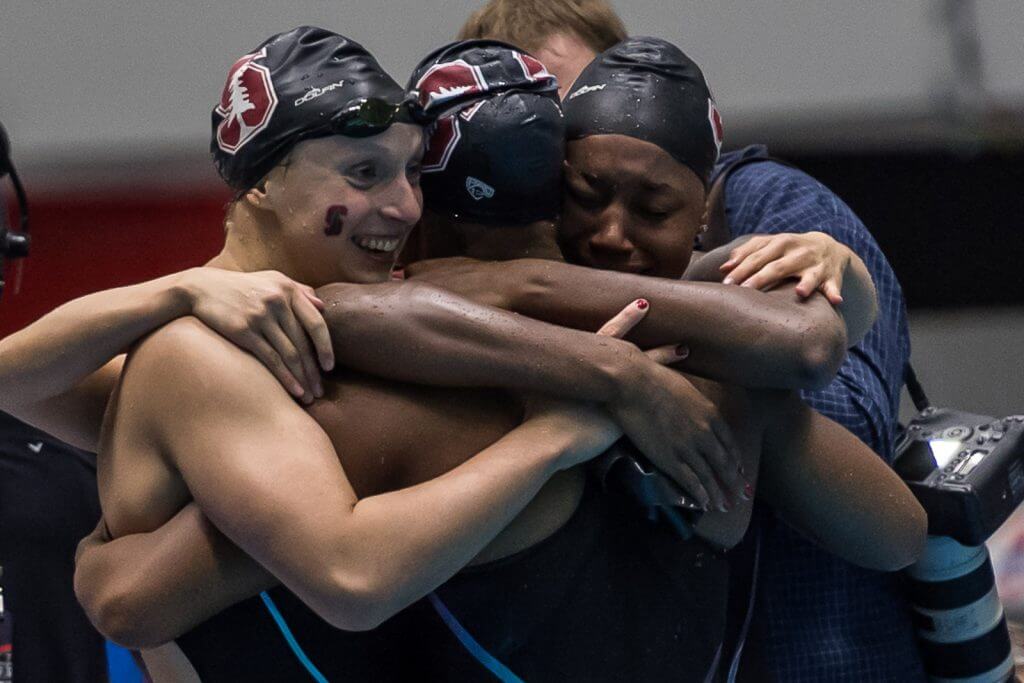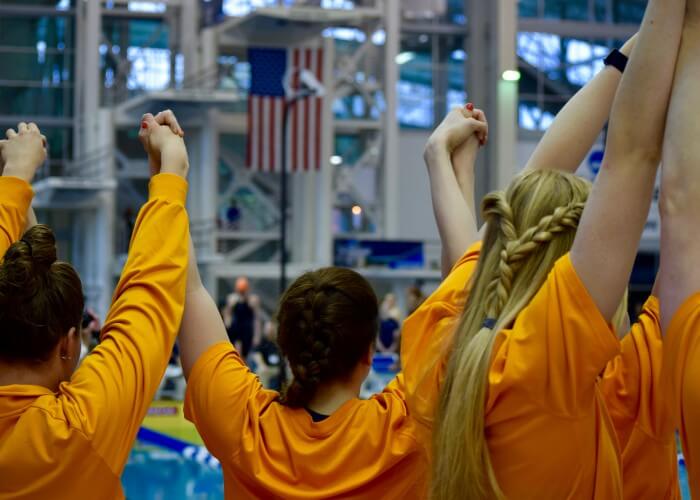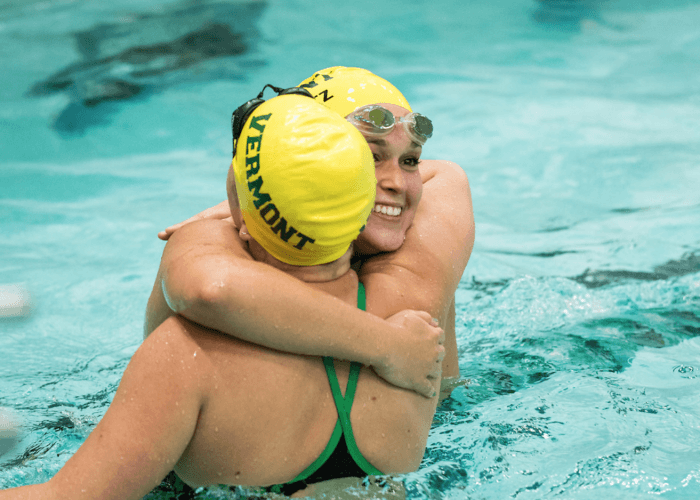How A College Team Becomes A Family

How A College Team Becomes A Family By Erin Keaveny, Swimming World College Intern
If you’re graduating high school in the next month or so and headed off to join a collegiate team, you have a memorable four years ahead of you. You’re one of the lucky few who get the opportunity to be a student-athlete, an experience no one will understand better than your future teammates.
If you’re a retired NCAA swimmer graduating college this week, or years ago, you’ll know that leaving school means trading in books and student centers for the great big world. There are exciting things ahead, but it can be hard when you’re leaving behind a team that has come to be more like family.
Swimming World asked collegiate swimmers at all stages of their career when or how they knew their teammates had become their second family.

Photo Courtesy: Annie Grevers
Freshman, who have only been with their team for a short period of time already feel it. While one first year swimmer commented that “we work together and keep tabs on eachother like a family,” another said they felt that as if their teammates were more like family from “the very beginning.” With only one year under their belts, these swimmers might not have had relationships with their teammates for the longest, but they already can see a collegiate team is something special.
The sophomores, with one more year of experience, have a deeper understanding of the team as a family. One commented that their team became a family “just by spending so much time together and having people to lean on.” Another added, “my team became my family as soon as school started. Whether we like each other or not we always take care of each other.” Just like any family, you don’t get to chose who your teammates are. But regardless of who your teammates are, you have each others backs through thick and thin, and that’s something really special.
By the time they’re juniors, swimmers know their teammates like they know their siblings. One junior observed, “from eating every meal together to cheering each other on for every race to spending every waking (and sleeping!) moment together, my team will always be my family.” Showing their experience and growth, another stated that “it’s always been a family. Sure things have changed over the years, but I have always known that my teammates are family.” By junior year, some teammates have spent so much time together that they might as well be related.
At the end of senior year, it’s hard to describe everything that has happened in the last four years in a few sentences without sounding too cliché. What makes a family special though is not found in generalizations, but specifics. One senior remembered “when I got a flat tire 30 minutes away from campus in the middle of the night a teammate drove to come pick me up. We go out of our way to have each other’s backs – no matter the circumstances. That’s what it means to be a family.”

Photo Courtesy: Brian Jenkins-UVM Athletics
Ultimately, its not the amount of time you spend together, or hours in the pool that make you a family. Its the collection of memories that come together to make up a team identity. In that shared identity, you can find a family.
Whether you’re on a team now, committed to one, or your collegiate career is long over, your teammates are most likely a part of you’re life. That’s because a college team is more than a bunch of people who train and compete together. Your team is your backbone at school, and in the wise words of Lilo from Disney’s Lilo and Stitch, “Ohana means family, and family means no one get’s left behind.”
All commentaries are the opinion of the author and do not necessarily reflect the views of Swimming World Magazine nor its staff.




Charlotte Garner